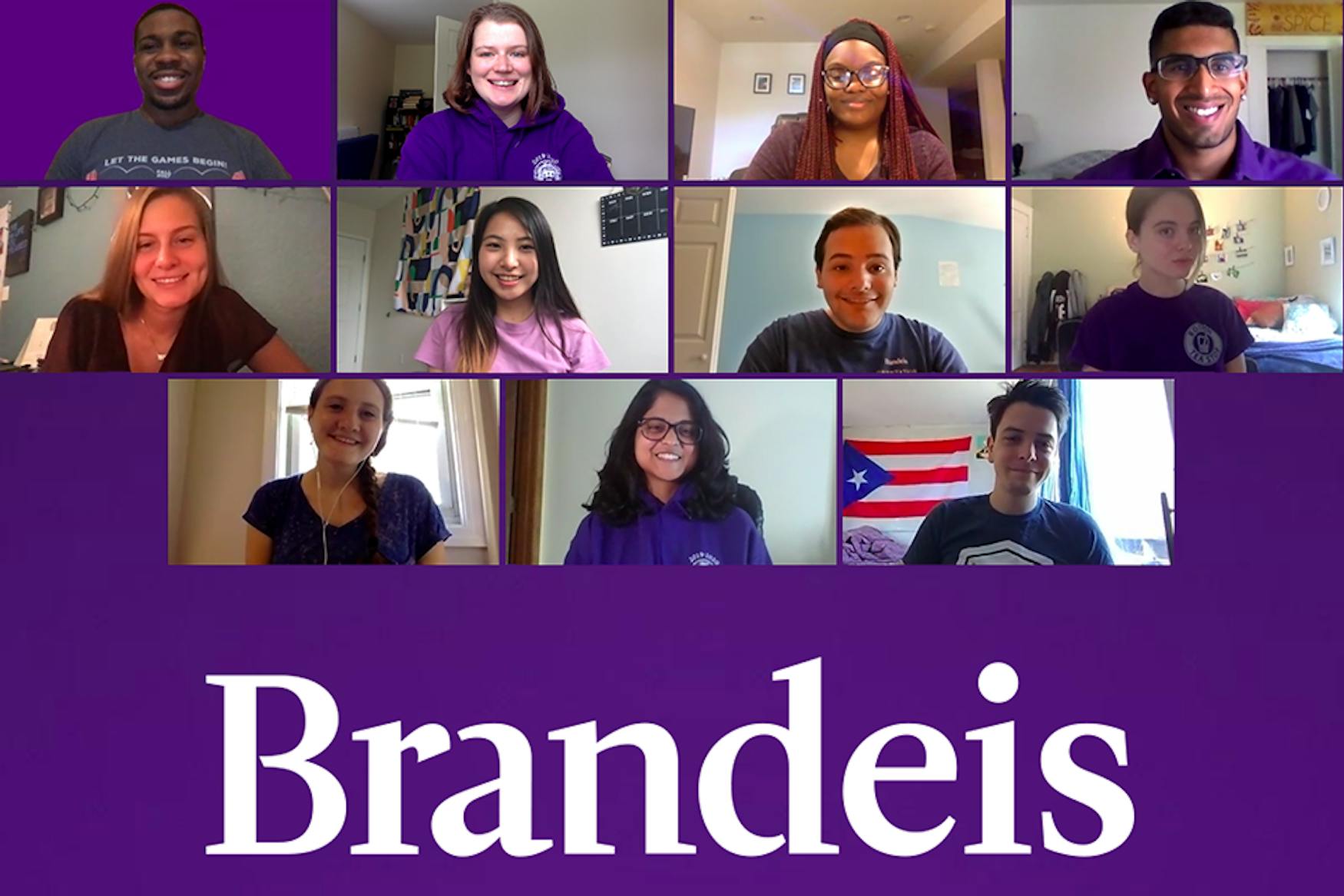Roosevelt Fellows continue to provide academic advice remotely
The Justice spoke to Roosevelt Fellows about how they do their jobs and connect with students in a fully virtual environment.
The Roosevelt Fellows are a group of juniors and seniors that “provide peer academic advising, reach a caseload of new Brandeisians directly, and give opportunities to all Brandeisians to meet via weekly office hours or by appointment,” per Adam Fleishaker ’21. Prior to the campus shutdown in early March, Roosevelt Fellows conducted all of their services and activities in person. Since their return to campus this semester, they have had to reinvent the way they engage with students as they transition to a fully virtual platform in order to comply with the University’s safety guidelines.
Student engagement has been one of the biggest challenges for the Roosevelt Fellows. “Transitioning to an online platform has been challenging primarily in maintaining the same level of outreach and engagement as we would otherwise,” Fleishaker wrote in an Oct. 10 correspondence with the Justice. While they have worked to increase their online presence and update their website frequently with the links to the events they are hosting, Fleishaker acknowledged that not all students have equal access to technology, “and having them feel informed and part of the Brandeis community, whether on campus or remote, is a daily challenge.”
While the transition to an online platform has been difficult, “having to innovate upon our existing ideas has been very beneficial,” shared Haley Brown ’22. This year, for instance, the Roosevelt Fellows were unable to hold one of their most popular events, “Meet the Rosies,” which allows students to “meet and ask questions to their Roosevelt Fellow students over ice-cream from Lizzy’s,” per Anushka Ghosh ’21. Instead, they have been working on new projects that can both be successfully conducted in an online platform and that make academic services more accessible to students, which is one of the main goals of the group. The fellows will be hosting a new event, “That’s a Major?!”, on Oct. 13 and 14 where they will be discussing all of the majors offered at Brandeis.
When it comes to office hours, which constitute a large portion of the services they offer, Roosevelt Fellows have worked hard to ensure that they are accessible to students on and off campus. Their website contains the Zoom links and times at which each Roosevelt Fellow is scheduled to be online, along with other contact information and short biographies. “Please don’t hesitate to reach out, we love to hear from students and we’re here to support you,” said Shania Thomas ’21. Even though they are trained to provide insight and support on navigating academic life at Brandeis, “you can talk to us about anything that’s on your mind because everything is connected. … We couldn’t expect to be a truly impactful resource if we didn’t take all factors into consideration,” Thomas said.
Using available resources is particularly important during the current COVID-19 pandemic, in which students have been forced to adjust to new ways of learning while attempting to maintain good physical and mental health. Adina Scheinberg ’21 shared that studying with others either over Zoom or in a socially-distanced manner can make academic tasks less overwhelming. “When you associate your schoolwork with a social interaction, it becomes less daunting and more fun!… I definitely recommend finding safe and meaningful ways to connect with peers in your classes to make your coursework more enjoyable!” she said. Ekenedilichukwu Uwanaka ’21 added on to that, highlighting the importance of allocating time in the day to reach out to friends and family. “Since people are around others less, it's important to make a priority out of calling friends and family more than you usually would,” he said. Penny Tao ’21 shared that scheduling some off-screen time every day to engage in other activities has helped her balance her academic responsibilities and her physical and mental wellbeing. “I suggest you can go out for a walk or meditate with some music you like. Cooking is also a way I always enjoy to escape myself from the virtual world,” she said.
For those who struggle with staying focused or on task, Ryan Partlan ’22 spoke about the advantages of “designating particular physical spaces for each type of activity” that you engage in, whether that be sleeping, going to class or doing homework. This helps your body associate certain areas of your room with a task. As he further explained, “staying in bed while going to class seems like a great idea at first, but it has been shown to decrease quality of sleep!” The University of Washington counseling center also recommends creating study routines that incorporate physical activity and social interaction, which will likely make study time more efficient and rewarding.



Please note All comments are eligible for publication in The Justice.